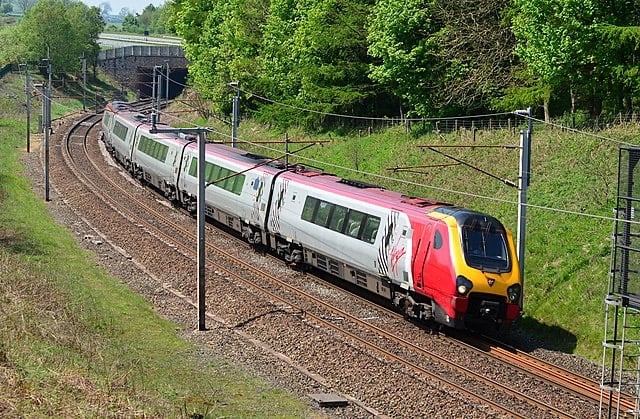Liberal Democrats call on government to follow Ireland’s lead with €100 penalties as YouGov poll shows 62% of Britons support crackdown
Labour is facing calls to impose fines of up to £1,000 on “headphone dodgers” who play music out loud on trains and buses, after Ireland’s rail operator announced €100 penalties for passengers who refuse to use headphones.
The Liberal Democrats have urged the government to “take a leaf out of Irish Rail’s book” following the Irish operator’s crackdown on what it calls “nuisance behaviour” on trains.
Paul Kohler, the Liberal Democrat Transport Spokesman, said: “People are sick and tired of headphone dodgers playing loud music on public transport, ruining people’s journeys, when they’re just trying to get from A to B in peace.
Irish Rail Takes Action
Irish Rail, the Republic of Ireland’s largest rail operator, has introduced new guidelines allowing train inspectors to issue €100 fines (equivalent to £86) to passengers who play music or watch videos without headphones.
The fines also apply to passengers caught vaping, putting feet or bags on empty seats, or engaging in other anti-social behaviour that disrupts fellow travellers‘ journeys.
Barry Kenny, Irish Rail Communications Manager, told Irish publication The Journal that train inspectors “have and will” issue the penalties, which already existed under CIE Bye-Laws but are now being actively enforced following customer complaints.
“It’s very much based on what our customers want. When you’re travelling with us, you want to have an enjoyable journey,” Kenny said.
He acknowledged that commuters “appear to be clashing” on the issue of playing audio out loud, noting that while it doesn’t compromise passenger safety, it can “disturb what in every other aspect might make an enjoyable journey.”
Strong Public Support for UK Fines
A YouGov poll has revealed that nearly two-thirds of Britons (62%) would support the Liberal Democrat proposal for fines of up to £1,000 for playing music or videos out loud on public transport.
Almost three in 10 (29%) of the 6,815 Brits surveyed strongly supported the suggested rules, while one in three somewhat supported the changes.
The polling also found that 79% of Britons say people playing music or videos out loud on their phone speakers bothers them, including 41% who say it bothers them “a great deal.
Lib Dems’ Campaign Intensifies
The Liberal Democrats first proposed the policy changes to the government in April this year, calling for an explicit ban on playing music or videos out loud on phones while on trains and buses in England.
The party commissioned polling from Savanta which revealed that 38% of train and bus users experienced fellow travellers playing music out loud “often or sometimes.
Crucially, the survey found that 54% of people would not feel comfortable asking someone to turn down their music on public transport, with this figure rising to 63% among women.
Silent Majority Demands Action
Mr Kohler emphasised the need for government intervention, stating: “The Government needs to answer the silent majority who don’t inflict their noise on others by taking a leaf out of Irish Rail’s book, and backing the Lib Dems‘ calls for tough action and fines for the anti-social headphone dodgers.
Lisa Smart, the Liberal Democrat Home Affairs Spokesperson, previously said: “Far too many people dread their daily commute because of the blight of anti-social behaviour, and headphone dodgers playing loud music on buses and trains are some of the worst offenders.”
She added: “Time and time again, I hear from people who say they feel too intimidated to speak up when someone is blasting music or other content from a phone or speaker.”
Existing Laws and Enforcement Issues
While railway bye-laws already prohibit playing loud music on trains without permission, enforcement remains patchy. Transport for London reported just two incidents of unauthorised music or singing on its network in 2024, with one person receiving a warning and no further action taken in the other case.
The Liberal Democrats want to amend the Bus Services Bill currently going through Parliament to explicitly ban the behaviour and ensure consistent enforcement across all public transport.
The party has proposed that such a move would be promoted by a national publicity campaign including posters on train platforms and at bus stops.
Cross-Party Support Possible
The proposals have received backing from some Conservative MPs, who agree that “common-sense reforms” are needed, though they emphasise that any new bye-laws must be backed by stepped-up enforcement.
The issue has also been linked to broader concerns about anti-social behaviour, with Home Secretary Yvette Cooper having instructed officials to work out “how and where” fines for anti-social behaviour can be used most effectively.
Ireland’s Approach Shows the Way
Irish Rail’s approach demonstrates that enforcement is possible when there’s political will. The company has sent out newsletters on the guidelines and is posting notices in train stations to advise passengers on acceptable behaviour.
Kenny said the initiative is “about awareness and making sure everyone’s journey is as enjoyable as possible,” adding that the rules are based directly on customer feedback and complaints.
The success of quiet carriages on Irish trains, where mobile phone use is restricted, has led the company to consider extending similar services to its Dublin to Belfast route.
As pressure mounts on Labour to address this widely-experienced annoyance, the Irish example shows that with clear rules and proper enforcement, the days of unwanted musical accompaniment on public transport could be numbered.
Follow for more updates on Britannia Daily
Image Credit (Shortened):
Train at Grayrigg (Virgin Trains Class 221 Voyager, West Coast Main Line, 24 May 2012) – by The Carlisle Kid, licensed under CC BY‑SA 2.0, via Wikimedia Commons



